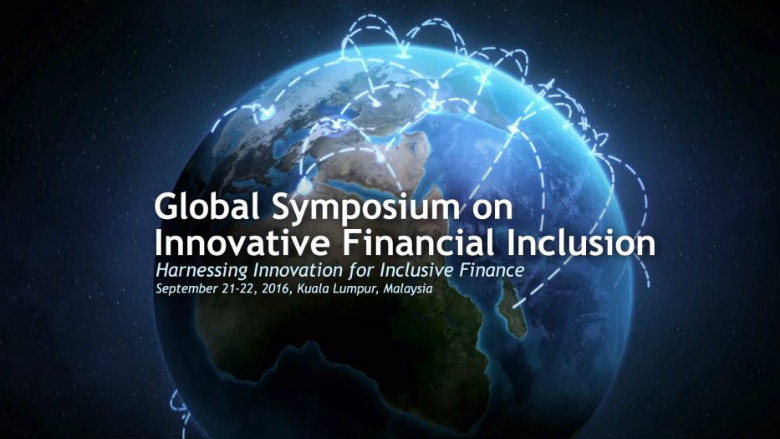
Blog - Islamic finance in Malaysia: Filling the gaps in financial inclusion
Blog - The FinTech revolution: A perspective from Asia
Although there has been commendable improvement in global financial inclusion, there are still as many as 2 billion adults that are financially excluded. Financial inclusion is recognized as critical to reducing poverty and achieving inclusive economic growth. Financially included individuals and firms can smooth their cash flows, meet unexpected expenditures or losses in income, or invest in their skills, health, assets, or new business. The World Bank Group has issued a call to action to achieve Universal Financial Access by 2020, which means that basic access to the formal financial system – for example, through debit cards or mobile money – should be possible for everyone.
Innovation in financial services has the potential to enhance financial inclusion in terms of access, quality, and usage in a cost-effective manner. Digital technologies, for example, are critical for inclusion, as they enable innovative and lower-cost business models for providing financial services, making it viable to reach the poor. They can also contribute to closing the persistent gender gap in access to finance—digital financial services allow women to receive or transfer money safely and conveniently from their own communities, businesses, and homes. These services can also make it safer and easier for women to put aside money for a medical emergency or a family job loss (and protect those savings from family members who may demand a share of the money).
As the global community continues to adopt innovative financial inclusion models, policymakers, regulators, and supervisors need to be positioned at the forefront of these developments so they are able to identify and manage the associated risks. More importantly, regulatory authorities need to be equipped with in-depth knowledge of innovative business models to develop an enabling ecosystem for innovative financial inclusion to thrive in a safe and stable manner.
The theme “Harnessing Innovation for Inclusive Finance” of the Global Symposium conveys the vision for innovative financial inclusion initiatives to be disseminated and scaled up globally in a responsible and sustainable manner. At the same time, policymakers and the private sector need to collaborate closely to understand and ensure that the associated risks of innovative financial inclusion are well-managed, so that there is confidence in the financial system as the estimated 2 billion unbanked adults migrate to formal financial channels.
The Objectives of the Global Symposium are to:
- Facilitate broader understanding of innovative financial inclusion, including the current status of digital finance and adoption of technology across the world, and opportunities for innovation to address financial inclusion challenges in developing countries;
- Showcase high-impact innovative financial inclusion channels and platforms that can advance financial inclusion;
- Demonstrate best practice and key lessons learned in innovative product design, sustainable business models and the effect on financial inclusion in terms of improving access, usage, and quality;
- Identify key barriers faced by the private sector in developing and deploying innovative financial inclusion initiatives, and how policymakers and regulators can contribute to the scaling up of viable innovative financial inclusion solutions;
- Deliberate potential risks posed by innovative financial inclusion models and identify proportionate regulatory and supervisory approaches that enable innovative financial inclusion initiatives to thrive in a sustainable manner;
- Serve as a nexus for public-private partnership in financial inclusion by convening national policymakers and private sector industry leaders to match technical needs and expertise.
Target Audience
The Global Symposium will convene up to four hundred global policymakers responsible for advancing the national financial inclusion agenda, regulators and supervisors from financial and non-financial sectors (e.g. ICT) and private sector industry leaders in innovative financial inclusion technology and solutions (local and foreign banks, IT start-ups)
Technology solutions companies are also invited to set up on-site exhibitions during the Global Symposium to showcase the latest innovative solutions in financial services.
Venue: The Global Symposium will be held at Sasana Kijang, No. 2 Jalan Dato’Onn, Kuala Lumpur, Malaysia.
Language: English
Organizers: The conference is jointly hosted by Bank Negara Malaysia and the World Bank
Fee: No Fees. Participants are responsible to make their own travel and accommodations arrangements.
